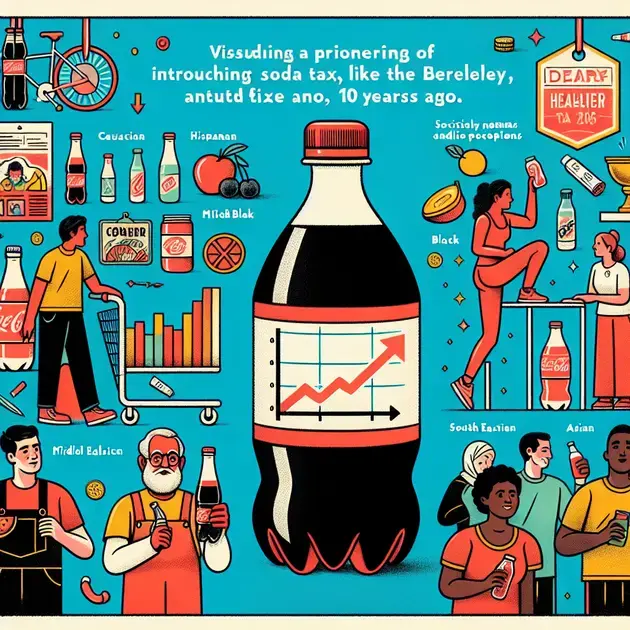This article will delve into the transformative effects of Berkeley’s soda tax and subsequent tax increases on sweetened beverages, exploring the evolution of public perception concerning these beverages’ impact on our health.
Changing Consumption Habits:
Berkeley’s soda tax has played a pivotal role in altering consumer behaviors and preferences. The imposition of a tax on sugar-sweetened drinks has led to a decrease in their overall consumption as individuals seek healthier alternatives, such as water, unsweetened tea, or fruit-infused beverages. Not only have these taxes prompted consumers to reassess their beverage choices, but they have also encouraged manufacturers to adapt their product portfolios to cater to the rising demand for healthier options.
Higher Awareness of Health Risks:
The introduction of soda taxes has significantly contributed to raising public awareness about the potential risks associated with excessive sweetened drink consumption. Through multimedia campaigns, educational programs, and community initiatives, local authorities have effectively disseminated information about the negative effects of sugary beverages on individual health, including the correlation between excessive consumption and conditions such as obesity, diabetes, and tooth decay.
Shifting Social Norms:
Berkeley’s soda tax has sparked a broader cultural shift in social norms surrounding soft drink consumption. The decades-long perception of soda as a socially acceptable and ubiquitous beverage has begun to wane, gradually being replaced by a growing emphasis on health-conscious choices. As more individuals become attuned to the consequences of excessive sugar intake, soda consumption is being increasingly stigmatized as a contributing factor to poor health outcomes. This changing social climate has created an environment where beverages associated with wellness and vitality are increasingly favored.
Impacts on the Beverage Industry:
The soda tax’s influence extends beyond consumers to the beverage industry itself. As the demand for healthier alternatives continues to rise, manufacturers have recognized the need to adapt their product offerings. This shift has resulted in an influx of low or zero-calorie beverages, natural fruit-infused drinks, and other innovative alternatives to carbonated sugary drinks. Manufacturers are now investing in research and development to create products that align with evolving consumer preferences for healthier options.
Conclusion:
Berkeley’s pioneering soda tax has not only achieved its initial goal of reducing sugary drink consumption but has also brought about profound changes in societal norms and attitudes towards these beverages. By curbing sales and promoting greater awareness of the health risks associated with excessive sugar consumption, this tax has spurred a transformation in consumer choices and preferences. As we move forward, it is essential to recognize the impact of such policies and continue to foster a culture that prioritizes well-being and educated decision-making in beverage consumption.
